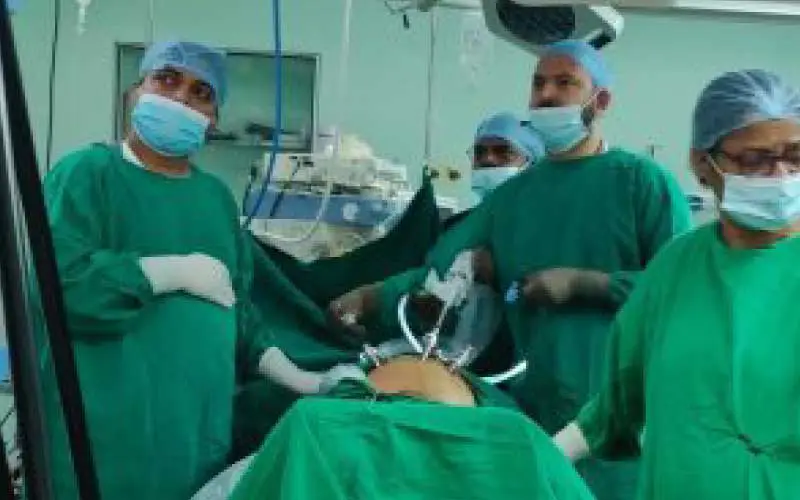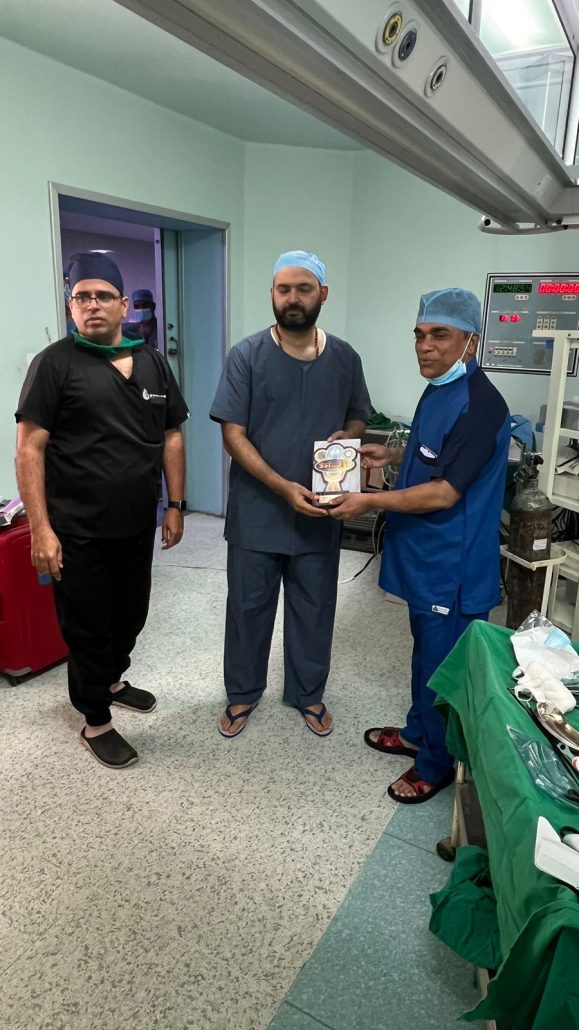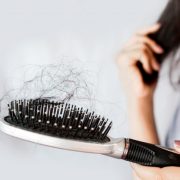Hair Fall After Bariatric Surgery
UncategorizedThere are lot of concern regarding hair fall after the bariatric surgery. Normal hair growth is dependent upon a healthy, balanced diet and hair fall is a sign of micronutrient deficiency. Hair fall usually begins after 2-3 months of undergoing surgery and is a temporary phenomenon which can be corrected by taking a proper diet with the required supplements.
Healthy hair growth needs proper intake of Vitamins A, B complex, C, E and biotin and micronutrients like iron, zinc and copper.
Other than these, a daily intake of protein of 1 g/kg body weight is essential for the maintenance and growth of all body tissues.
Hair fall is a sign of deficiency of one, or many of these essential nutrients. It is precipitated in people having a borderline nutritional status before surgery who fail to maintain the normal RDA of these nutrients postoperatively.
This can be corrected by a balanced diet containing fresh green vegetables, salads, yellow fruits, milk, eggs, etc and capsules with multivitamin supplements.
Rich sources of the required micronutrients are listed below-
- Vitamin A – Sweet potatoes, Carrots, mangoes, lettuce, bell peppers, liver
- Vitamin B complex – Legumes, whole grains, oats, oranges, milk, poultry
- Vitamin C – Citrus fruits, Amla, Lemon, broccoli, sprouts
- Biotin – Almonds, Nuts, whole grains, eggs
- Iron– whole grains, green vegetables, nuts, cereals, red meat
- Zinc– Whole grains, nuts, beans, red meat, seafood
- Protein– Milk products, Egg white, poultry, Fish, Soyabean
The normal hair growth cycle takes around 3 months so these supplements are required for a minimum of this time frame. However, the diet modifications need to be continued and maintained life long to avoid having these problems in the future.
About DOSS
A leading Center of Excellence in Diabetes Surgery, Bariatric Surgery, Robotic Weightloss Surgery, Laparoscopic Hernia and GI Surgeries based in Pune, India
DOSS is the only IEF(International Excellence Federation) certified facility in Pune and Western Maharashtra.
CONTACT US
Address :
OPD NO 5, Jupiter Hospital Lane, 3, Baner - Balewadi Rd, Prathamesh Park, Baner, Pune, Maharashtra 411045
Phone No. : 9011 100 010 / 020 27992799
Quick Links
OPD TIMING
Dr. Satish Pattanshetti
(Tue-Thur-Sat : 11 Am to 1 PM and 5 PM to 7 PM)
Open 24 Hours
Get In Direction
OPD Timing
Dr. Neeraj Rayate
(Mon-Wed-Fri : 11 Am to 1 PM and 5 PM to 7 PM)
Open 24 Hours


 +919011100010
+919011100010 




